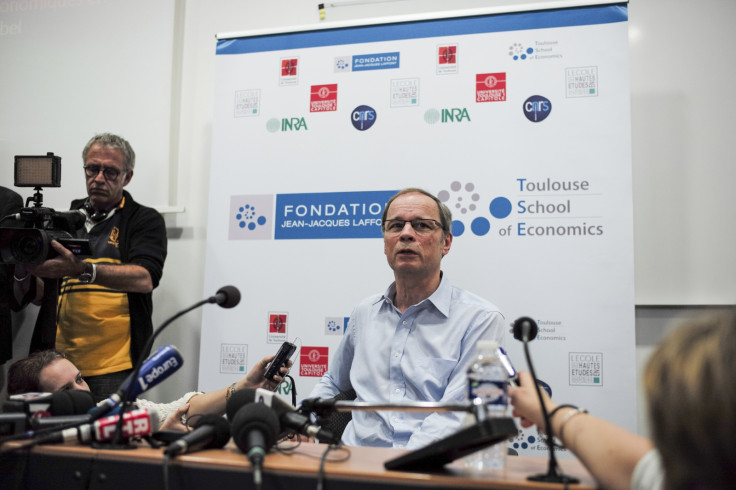Jean Tirole Wins Nobel Prize for Economics for Work on Corporate Monopolies

French economist Jean Tirole, known for his work on the regulation of large companies, has won the Nobel Prize for Economics.
Tirole, of Toulouse University, has published influential works on competition and ensuring consumers are protected from monopolies. His ideas on "asymmetric information" – when corporations have more knowledge of their market than those supposed to be regulating it – have gained traction in the years since the financial crisis.
The judging committee praised his ability "to understand and regulate industries with a few powerful firms" which made him "one of the most influential economists of our time".
Tirole has been an advocate of restricting the free flow of capital in order to prevent financial crises – a theory he expounded in his book Financial Crises, Liquidity, and the International Monetary System, published five years before the global financial crisis took root.
Explaining its decision, the Royal Swedish Academy of Sciences, which chooses the winner, said: "Many industries are dominated by a small number of large firms or a single monopoly. Left unregulated, such markets often produce socially undesirable results – prices higher than those motivated by costs, or unproductive firms that survive by blocking the entry of new and more productive ones.
"From the mid-1980s and onwards, Jean Tirole has breathed new life into research on such market failures. His analysis of firms with market power provides a unified theory with a strong bearing on central policy questions: how should the government deal with mergers or cartels, and how should it regulate monopolies?"
Tirole, 61, was praised for presenting a framework on competition and regulation which can be applied to every industry, allowing governments to make more productive and secure sectors.
The formation of the European single market ushered in an era in which mergers and acquisitions have become more prevalent, and Tirole's work has been viewed as increasingly vital. Mergers are often seen as threats to competition and ways in which markets can be cornered and lead to price-setting.
Reacting to his award, Tirole expressed surprise, saying it took him "half an hour to recoup from the call". He said the first person he told was his wife, followed by his 90-year old mother, who he advised to take a seat before breaking the news to her. Tirole said that his mother, as a former teacher of Latin and Greek, is a lover of knowledge and thus, the reward will make her very proud.
He joins compatriot Patrick Modiano – who won the Nobel literature prize last week – on the roster of French winners this year.
Tirole helped found the Toulouse School of Economics, which is seen as one of the most prestigious in Europe. In accepting the award, he praised his mentor Jean-Jacques Laffont, who passed away 10 years ago after suffering cancer. Tirole said "he would have deserved to share the prize". Laffont's work advanced theories on improving underdeveloped economies, as well as regulation.
Tyler Cowen, economics professor at George Mason University and an influential writer, wrote: "It's an excellent and well-deserved pick. One point is that some other economists, such as Oliver Hart and Bengt Holmstrom, may be disappointed they were not joint picks, this would have been the time to give them the prize too, so it seems their chances have gone down.
"Overall I think of Tirole as in the tradition of French theorists starting with Cournot in 1838 (!) and Jules Dupuit in the 1840s, economics coming from a perspective with lots of math and maybe even some engineering. I don't know anything specific about his politics, but to my eye he reads very much like a French technocrat in terms of approach and orientation. Jean Tirole is renowned as an excellent teacher and a very nice person."
© Copyright IBTimes 2025. All rights reserved.






















